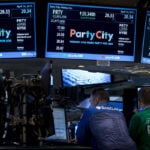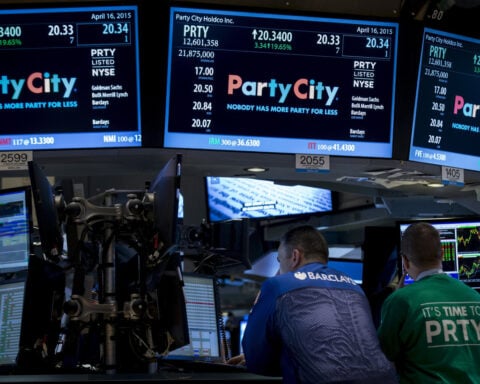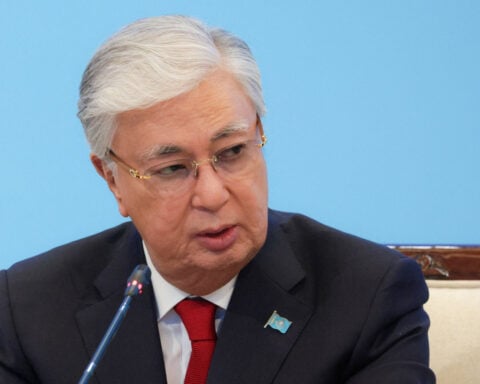WASHINGTON (AP) — U.S. wholesale prices fell sharply last month as inflationary pressure continued to ease after a year and a half of higher interest rates.
The Labor Department reported Wednesday that its producer price index — which measures inflation before it hits consumers — dropped 0.5% in October from September, the first decline since May and biggest since April 2020. On a year-over-year basis, producer prices rose 1.3% from October 2022, down from 2.2% in September and the smallest gain since July.
Excluding volatile food and energy costs, so-called core consumer prices were unchanged from September to October and rose 2.4% from a year earlier. The year-over-year gain in core producer prices was the smallest since January 2021.
The wholesale price of goods fell 1.4% from September to October, pulled down by a 15.3% drop in the price of gasoline. Services prices were unchanged.
Inflation last year reached heights not seen in four decades, prompting the Fed to raise its benchmark interest rate 11 times since March 2022.
As borrowing costs have risen, inflation has decelerated sharply. Year-over-year wholesale inflation, for instance, has dropped since hitting 11.7% in March 2022. On Tuesday, the Labor Department reported that its consumer price index was unchanged from September to October and up 3.2% from a year earlier — smallest year-over-year increase since June. But consumer inflation is still coming in above the Fed's 2% target.
Despite higher interest rates, the U.S. economy and job market have remained resilient. The combination of a sturdy economy and decelerating inflation has raised hopes that the Fed can manage a so-called soft landing — raising rates just enough to tame inflation without tipping the economy into recession.
The Fed hasn't raised its benchmark rate since July, and many economists believe its rate-hike campaign is over.
Commenting on last month's drop in producer prices, Matthew Martin of Oxford Economics said: "The Fed will welcome the reprieve ... and coupled with yesterday’s CPI report, it bolsters the case for no further rate increases.''

 How to save a fentanyl victim: Key facts about naloxone
How to save a fentanyl victim: Key facts about naloxone
 Eight convicted in France over murder of teacher who showed Prophet caricature
Eight convicted in France over murder of teacher who showed Prophet caricature
 Death toll in German Christmas market car-ramming rises to five, more than 200 injured
Death toll in German Christmas market car-ramming rises to five, more than 200 injured
 Syria's new rulers name foreign minister amid push for international relations
Syria's new rulers name foreign minister amid push for international relations
 Pakistan dismisses US official's warning over missile programme as unfounded
Pakistan dismisses US official's warning over missile programme as unfounded
 Weightlifting Taiwan granny, 90, garners cheers, health benefits at gym
Weightlifting Taiwan granny, 90, garners cheers, health benefits at gym
 Russia's UK embassy denounces G7 loans to Ukraine as 'fraudulent scheme'
Russia's UK embassy denounces G7 loans to Ukraine as 'fraudulent scheme'
 Retailer Party City files for bankruptcy, will wind down 700 stores
Retailer Party City files for bankruptcy, will wind down 700 stores
 Philadelphia 76ers star Joel Embiid working through injuries and mental health struggles
Philadelphia 76ers star Joel Embiid working through injuries and mental health struggles
 Soccer's top players have had enough, as FIFA's new super-sized tournament sparks a revolt
Soccer's top players have had enough, as FIFA's new super-sized tournament sparks a revolt








